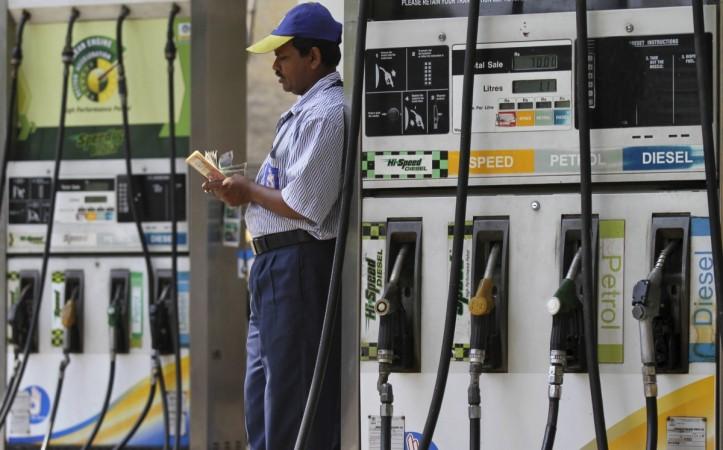
Petrol price has surged to a four-year high of Rs 73.73 a litre while diesel rates touched an all-time high of Rs 64.58 in Delhi.
This is the highest since 14 September 2014, when petrol rates had hit Rs 76.06 due to higher prices globally.
At the same time, compressed natural gas (CNG) prices in Delhi have been revised from April 2, and increased to Rs 40.61 per kg, while the piped natural gas (PNG) prices have been hiked to Rs 27.14 per standard cubic meter.
But why are domestic fuel prices skyrocketing even when global fuel prices have inched lower? Lets take a took at some of the factors attributing to this rise:
- Blame it on excise duty: India has the highest retail prices of petrol and diesel among South Asian nations as taxes account for half of the pump rates, according to newswire PTI. Finance Minister Arun Jaitley has raised excise duty nine times between November 2014 and January 2016 to shore up finances as global oil prices fell, but then cut the tax just once in October last year by Rs 2 a litre.
- VAT: Despite repeated calls by the government to lower lower value added tax (VAT), only states such as Maharashtra, Gujarat, Madhya Pradesh and Himachal Pradesh have reduced rates while others continue to charge VAT.
- Revenue boost: The hike in duty helped government's excise mop up more than double to Rs 242,000 crore in 2016-17 from Rs99,000 crore in 2014-15.
- Robust demand: Despite surging fuel prices, demand for fuel in India stays steady. It is a lifeline of Indian economy as it's needed to ferry essentials such as vegetables and grains from rural areas to towns while fuel alternatives are used in infrastructure projects and other key government investments.
- Why not bring it under GST? Talks are ongoing to cut state and center-specific taxes and bring petrol and diesel under the common goods and services tax (GST).

















